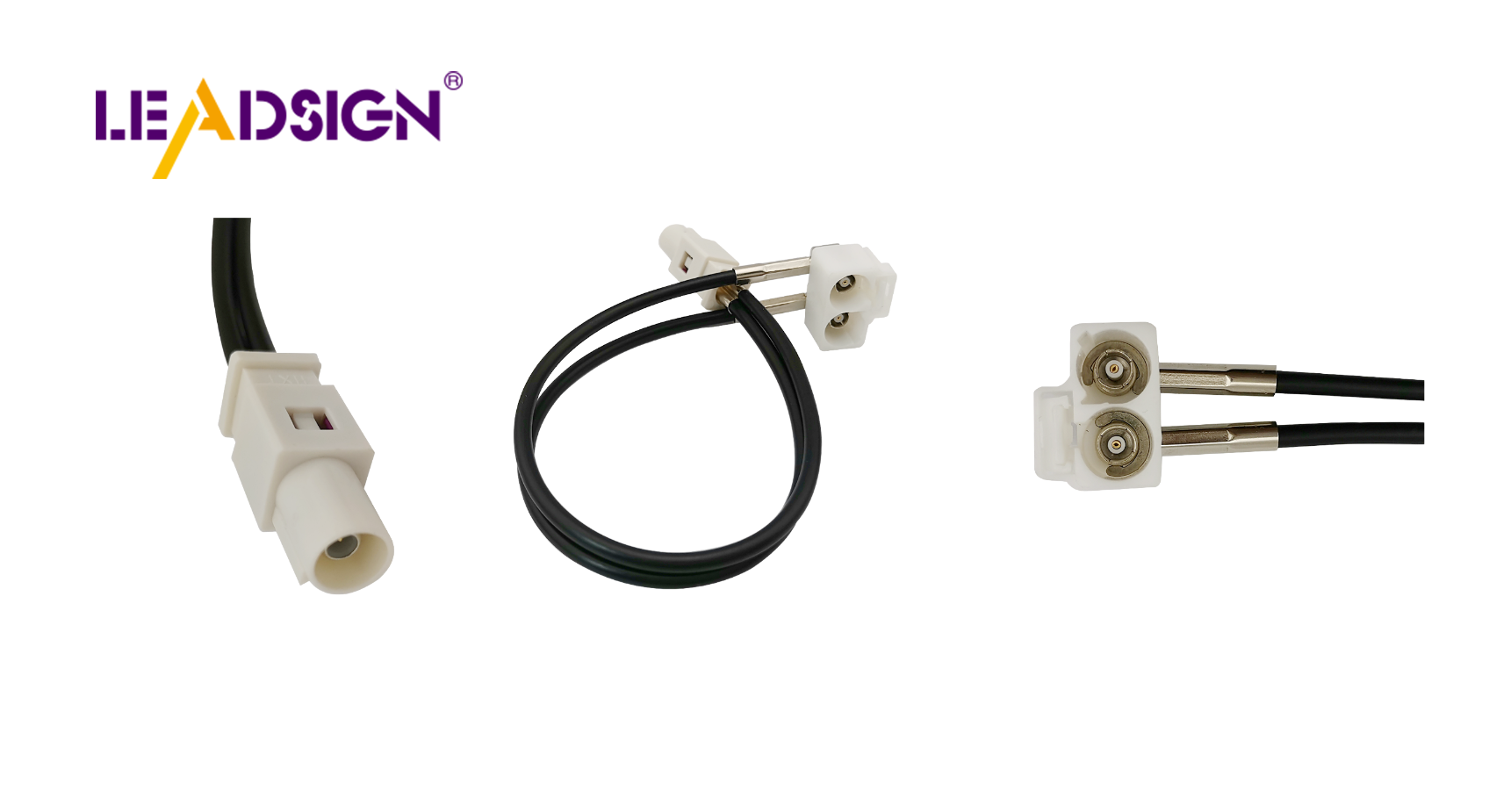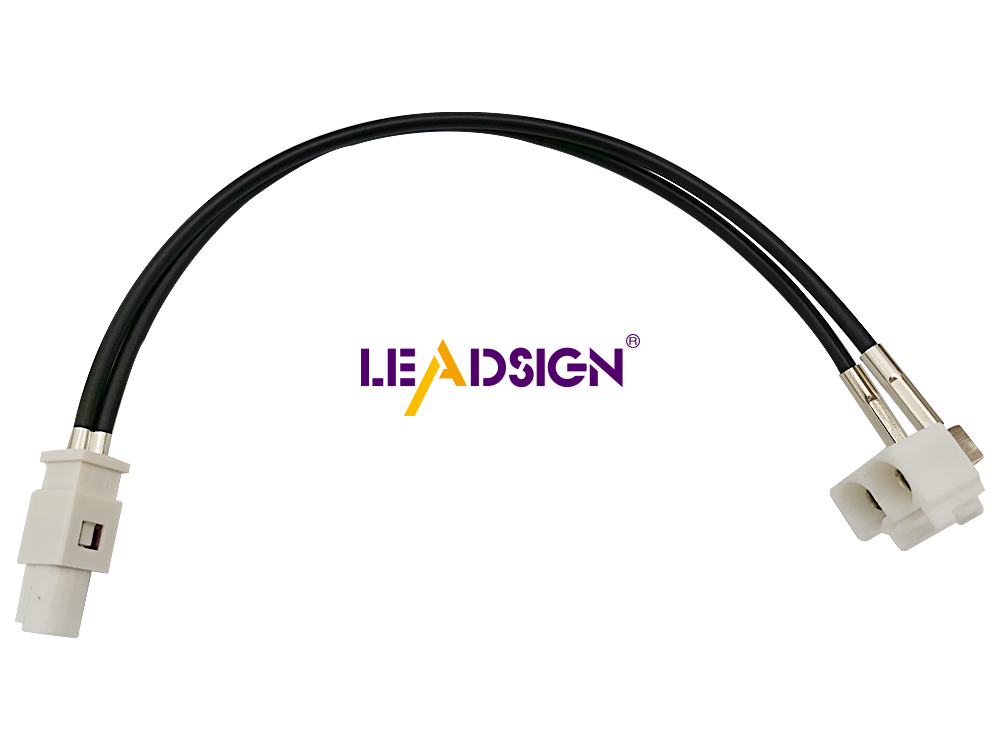Understanding Car Wiring Wire: Types and Uses of 2 Pin Automotive Connectors

Knowing car wiring wire is important for car safety and performance. Cars today have lots of wires connecting parts. These wires can get damaged over time. Damage can come from rust or use, causing electrical problems. 2 pin connectors are very important here. They keep connections strong in the car's systems. This helps stop problems like broken lights or engine issues. Learning about car wiring wire and their uses can make your car last longer and work better.
Key Takeaways
Understanding 2 pin automotive connectors is crucial for maintaining your car's electrical system, ensuring safe and reliable connections.
Regularly check your car's wiring and connectors to catch issues early, preventing costly repairs and ensuring optimal performance.
Choose the right type of wire—copper, aluminum, or tinned—based on your car's specific needs for durability and efficiency.
Pay attention to heat ratings and weather protection when selecting wires to avoid electrical failures and enhance longevity.
Follow industry standards like SAE and ISO to ensure the quality and safety of your car's wiring components.
Keep your car's connectors clean and dry to prevent rust and water damage, which can lead to electrical problems.
If you're unsure about changing connectors, consult a professional to ensure proper installation and maintain your car's safety.
What are 2 Pin Automotive Connectors?

Definition and Function
You might ask, what is a 2 Pin Automotive Connector? These are key parts in your car's electrical system. They make sure wires connect safely and securely. This keeps electricity flowing well in your car. Good connections are important for car systems to work right. These connectors can handle different electric needs, so they are useful in many car parts.
Common Uses in Vehicles
Lighting Systems
Your car's lights need 2 Pin Automotive Connectors. They help headlights, taillights, and fog lights get power. For example, brands like Subaru, Acura, and Honda use them for fog lights and low beams. They keep lights bright and steady, making driving safer.
Sensor Connections
Sensors check and control how your car works. 2 Pin Automotive Connectors link these sensors to the car's main system. They send data from sensors, like engine heat or fuel levels, correctly. This helps the car's computer make smart choices, improving how the car runs.
Power Supply Connections
Power connections in your car use 2 Pin Automotive Connectors too. They are good for high-power needs, like starting the engine. You find them in engine control systems. They give strong connections, so important parts get the power they need. This helps your car work well and last longer.
Types of Car Wires with 2 Pin Connectors
Knowing car wire types is key for good car electricity. Each wire type is special and used differently. Picking the right one is important.
Copper Wires
What They Are Like
Copper wires are common in cars. They carry electricity well and bend easily. Copper is simple to use, especially when joining wires. This makes it a top pick for many car uses. Copper also fights rust better than some other wires. This keeps connections strong over time.
Where They Are Used
In cars, copper wires are used where good electricity flow is needed. They are in engine wires, lights, and inside electronics. Copper bends into small spaces, great for tricky wiring. It lasts long, keeping car systems working in different conditions.
Aluminum Wires
What They Are Like
Aluminum wires are light and cheap. They bend easily without breaking. But, they are hard to join and rust more at ends. Still, they carry electricity well for some uses.
Where They Are Used
You use aluminum wires when you want a lighter car. They are in battery cables and high-power spots. Aluminum is less used in cars than copper but helps make cars lighter.
Tinned Wires
What They Are Like
Tinned wires are copper with a tin coat. The tin stops rust, especially in wet places. They work well in heat, making them strong for tough jobs.
Where They Are Used
In cars, tinned wires are good for wet areas. They are in sensors and important systems needing trust. The tin coat keeps them rust-free, lasting long for car electricity needs.
Things to Think About When Picking Wires for 2 Pin Connectors
When picking wires for 2 pin connectors, think about some key things. These help your car wires work well and last long in different car uses.
Heat Ratings
Heat ratings are important when picking car wires. You need wires that can handle your car's heat. Good car wires can take high heat. This stops them from melting or breaking, which can cause problems. Always check the wire's heat rating to match your car's needs.
Protection from Weather
Car wires face tough weather. Pick wires that fight water and rust to keep working well.
Water
Water can hurt car wires. It can get into connectors and cause shorts. Good car wires have covers that stop water. This keeps connections safe and working.
Rust
Rust is bad for car wires. It happens when water and chemicals hit metal, making it work poorly. Pick wires with coatings that stop rust. This keeps your car's wires working well over time.
Following Rules
Following rules makes sure car wires are good and safe. Look for wires that follow these rules for trust.
SAE Rules
The Society of Automotive Engineers (SAE) makes rules for car wires. These rules make sure wires can handle car jobs. Picking wires that follow SAE rules means they are tested and good.
ISO Rules
The International Organization for Standardization (ISO) also has rules for car wires. ISO rules focus on quality and work. Picking wires that follow ISO rules means they are made to handle different weather and work well.
By thinking about these things, you can pick the best car wire for your 2 pin connectors. This choice will make your car's wires work better and last longer.
Choosing the right car wire for 2 pin connectors is important. It keeps your car safe and working well. Good wires handle different weather and heat. This stops problems like breaks or fires. Here are some tips to help:
Know what your car needs, like power and weather.
Pick the right wire cover for the heat and conditions.
Make sure wires follow rules like SAE and ISO for good work.
By doing this, your car's wires will last longer and work better.
FAQ
Why are car connector wiring harnesses important?
Car connector wiring harnesses are key for your car's electrical system. They help all parts work well and safely. Knowing about these harnesses keeps your car running smoothly. If you need more help, contact our support team. We are ready to help you.
Why change car connectors?
You may need to change car connectors for many reasons. Over time, they wear out and work less well. Accidents can also break them, needing a change. Good connectors keep your car's electrical system working right.
How do I know if my 2 pin car connectors need changing?
Watch for flickering lights or sensors not working. These signs mean bad connectors. Check them often to catch problems early. This keeps your car's electrical system in good shape.
Can I change car connectors myself?
Yes, you can change car connectors if you have the tools and know-how. But if unsure, ask a pro. Right installation is key for your car's safety and working well.
What wires should I use with 2 pin connectors?
Pick wires based on your car's needs. Copper wires are common for being good and bendy. Aluminum wires are light and cheap. Tinned wires fight rust, good for wet places. Choose the right type for best work.
How do I make sure my car connectors resist weather?
Choose connectors with covers to stop water and rust. Find ones made for tough weather. Regular checks help keep them in good shape.
Are there rules for car connectors?
Yes, car connectors should follow rules like SAE and ISO. These rules make sure connectors are good and safe. Picking connectors that follow these rules means they are reliable.
How often should I check my car's wiring and connectors?
Regular checks keep your car's electrical system good. Look at your wiring and connectors at least once a year or when you see problems. Finding issues early stops big repairs and keeps your car running well.
Can bad connectors hurt my car's work?
Yes, bad connectors can cause problems like dim lights or sensors not working. Fixing these fast stops more damage and keeps your car working well.
Where can I learn more about car connectors?
For more info, check your car's manual or ask car experts. Online sites and forums can help too. Knowing more helps you make good choices for your car's electrical system.
See Also
Understanding HSD Connectors Within Automotive Engineering
Why FAKRA Connectors Matter in Automotive Technology
An In-Depth Look at HSD Connectors

